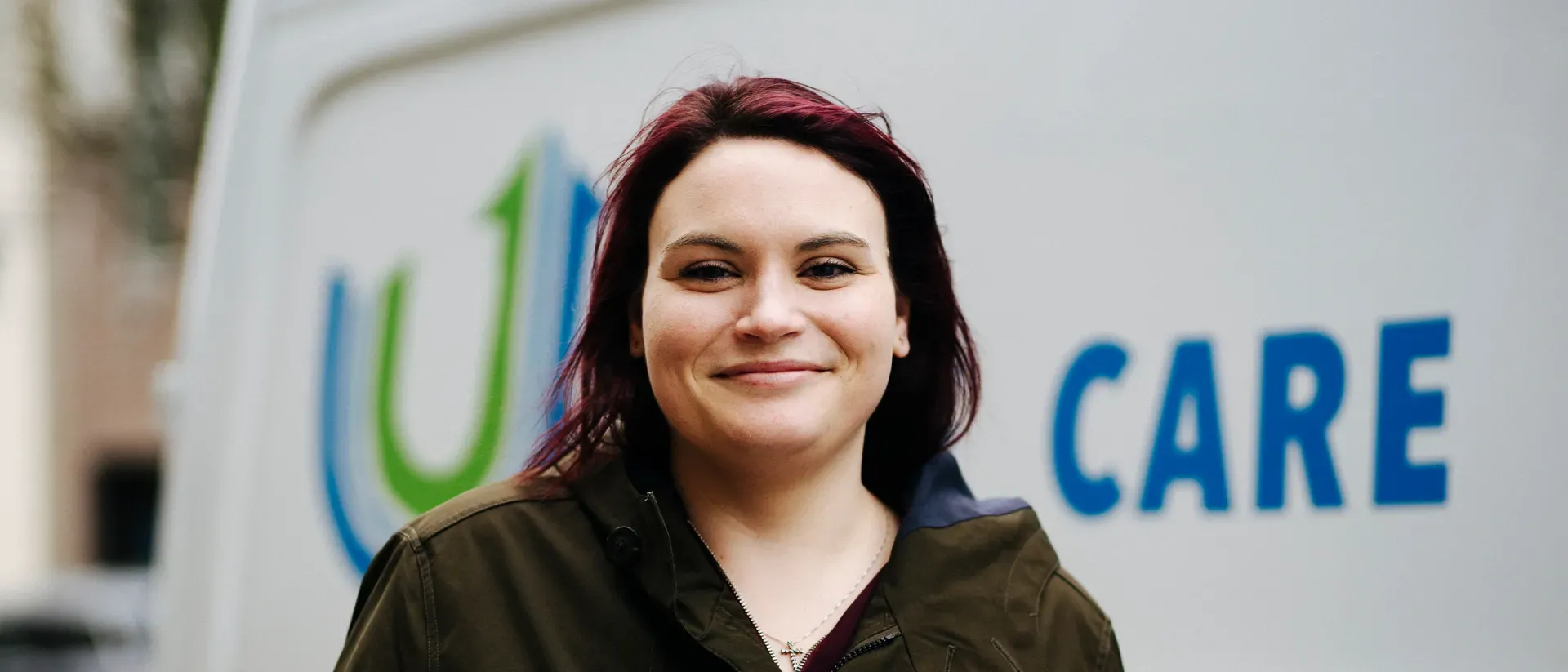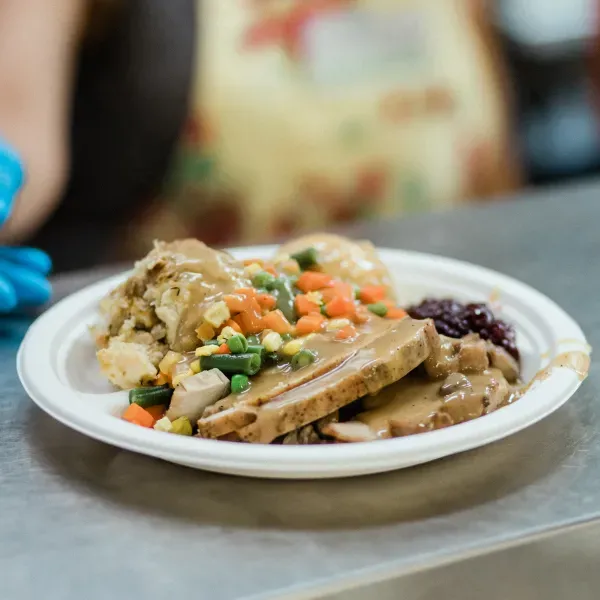Content warning: This story contains mentions of substance dependence, abortion, and physical and sexual abuse. Please read with care for your own well-being.
Kristy has been looking forward to sharing her story. When she comes by to talk with us, she’s bubbling with enthusiasm: “This is something I’ve wanted to do since coming to UGM! This is something I’ve been striving for.” She knows the power of a story, and how one moment of invitation can change a life. Here, in her own words, she tells how she accepted help when she needed it most — and the good things that came next.
I've always been really into art. As a kid, I liked drawing and colouring, scrapbooking, anything related to crafts. As an adult, I studied graphic design. Creativity has followed me all through my life.
It took me a while to realize that God’s been following me through my life, too. At first, I was on the fence about the idea of a higher power. But then I experienced so many coincidences — so much evidence of God’s presence in my circumstances — that now I know there’s no such thing as coincidence. Those moments were God working in my life.
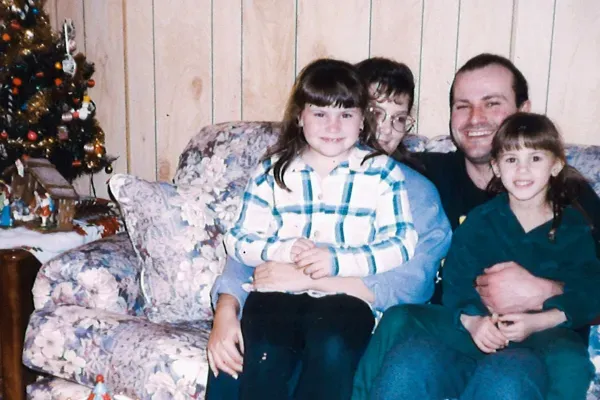
Caught between two worlds
On the outside, my family looked like it was normal. We lived in the same home in Ontario all through my school years, and I was kind of a bookworm while my younger sister was the more social one. I focused a lot on my grades; I had a pretty stable life.
But I know now that what I saw at home was also very dysfunctional. My dad was addicted to alcohol for as long as I can remember. When he was drinking, he sometimes got angry and aggressive, continuing into the early hours of the morning. He struggled to hold a job; my mom worked two jobs to keep things together. To cope with my fear, I developed the mentality that I was “the good child” — not wanting to be in trouble fueled what I did in life.
I hadn’t had a lot of boyfriends in my younger years, so I started going to parties as a teenager with my sister as a way to get myself out of my shell. Drinking helped with that — it made me confident. I could socialize without the fear of being rejected. But because I was diabetic and there were some misunderstandings around my condition, my first experience of drinking involved a trip to the emergency room; after that, my mom said that if I wanted to drink with friends, it should be at our house. We had a bar in the basement, and our house quickly became the party house.

Searching for an emotional connection
I eventually started to hang out with boys, then met men online. I didn’t really have an idea of how men should behave on dates, but I was desperate to love someone and have someone love me. Because I felt like I was behind socially, I dated a lot in college, not really caring if I hurt others or myself. I had an accidental pregnancy that I terminated. It was a mess.
By age 24, I was working full-time in a marketing department, paying off my student loans — looking back, I had a lot going for me. But I wanted to be in a real relationship. And that’s when I met Levi. We got really close really quickly. He was a carpenter and wanted to start his own business, so I lent him money. We moved in together: I had good credit, so I furnished our apartment.
“I wanted to make those emotional connections that can help people live a happy life.”
Usually in dating situations, I would get gut feelings when something wasn’t right, but with Levi, I ignored a lot of red flags. What I didn’t realize was that he was struggling with addiction; I would come home from work to find things missing from the townhouse I was renting. It turned out he’d taken them to the pawn shop. When I asked him what he’d been spending the money on, that’s when the physical abuse started.
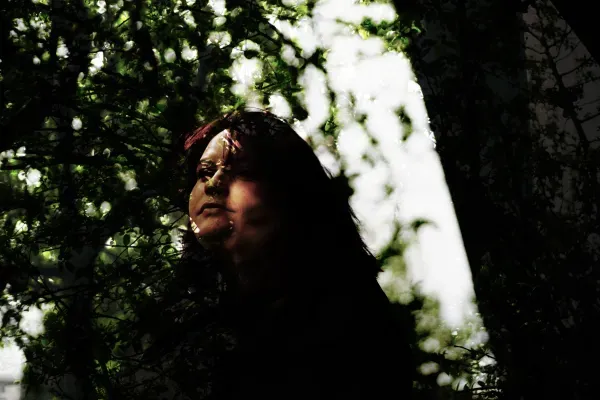
Navigating deteriorating circumstances
At this point, we were in terrible debt. We moved from rental to rental until we couldn’t afford it anymore, then we lived in rooming houses. I’d been so naive, I didn’t even know people lived like that, with cockroaches and bedbugs. I was so ashamed, I started keeping secrets from my family; over time, I lost my friendships and started doing the drugs Levi was doing. I left my job. Our whole lives focused on getting drugs, and because of our domestic disputes, the police were often involved. The cycle went on and on.
Levi’s influence on me was so strong because he could be nice one minute, and then the next it was like a switch flipped. He was controlling and secretive. It was like living with Dr. Jekyll and Mr. Hyde. We began stealing to support our addictions, and eventually Levi pressured me into exchanging sexual favours for drugs. I now realize that’s how a lot of women end up in sex work, through their boyfriends.
By 2019, we were in danger from the people we’d stolen from and owed money to. Levi’s cocaine use had ramped up his paranoia, and he’d started taking fentanyl. To escape our problems, he suggested we drive to British Columbia to be closer to his family, and to get a fresh start.
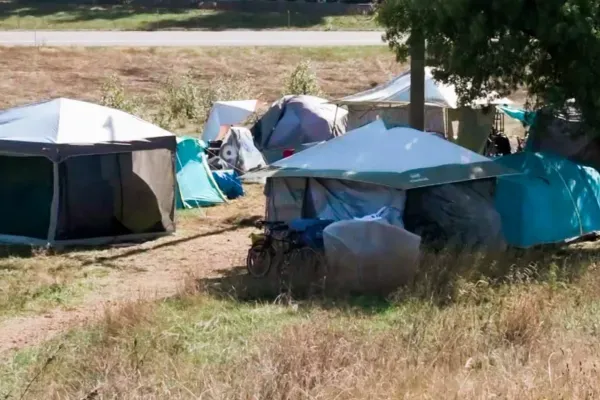
Moving further away from stability
It took us almost two months to arrive in BC. We lived in hotels and out of our car, and we only had one phone, where Levi monitored my browsing history. Once we got to Chilliwack, I distinctly remember him telling me “You’re on my turf now, you follow my rules.” He controlled my calls and my environment. I couldn’t escape him: I was halfway across the country from my family, and I didn’t know anyone. It felt like this had been his plan all along.
Because Levi got high on a camping trip and wrecked our car, we ended up homeless. We lived in forests, moving from campsite to campsite outside Abbotsford. I became addicted to opioids, and our relationship stopped being a relationship: we were just two people who used drugs together. We lived this way for two years.
In the midst of all this, we’d heard this rumour of a van that drove around giving out free survival supplies. It turned out to be the Mobile Mission Van, and it was then that we met Ed and Shelley, who were running the van at that time. They were kind people, and they would pray with us. We became good friends with them.
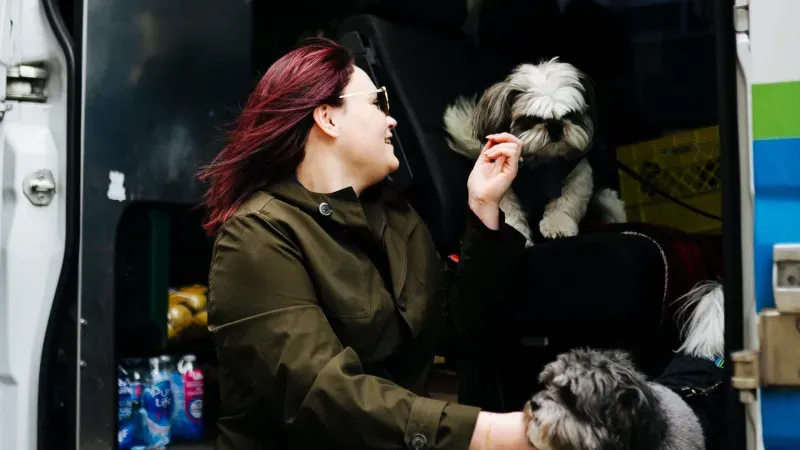
Making an escape
I don’t think people really know how hard it is to be homeless. Often, you aren’t treated like a human being. Because of our lifestyle and my diabetes, I’d started developing black spots in my left eye: eventually, it congealed into one big blob. I was so afraid I was going to go blind. I knew I needed to get out of my relationship.
The last straw for me was when Levi and I had been kicked out of a motel, homeless again. We were frustrated, and had just sat down to figure out what to do next when the Mobile Mission Van showed up. Levi had disappeared, leaving me alone, and in that moment, I made a choice. I was ready for change. I got in the van with Ed and Shelly.
I was terrified, and I was shaking the entire time. But as soon as I hopped in the van, I could feel this physical weight being lifted off my chest. Like all my worries didn't exist anymore and I was free.
“As soon as I hopped in the van, I could feel this physical weight being lifted off my chest.”
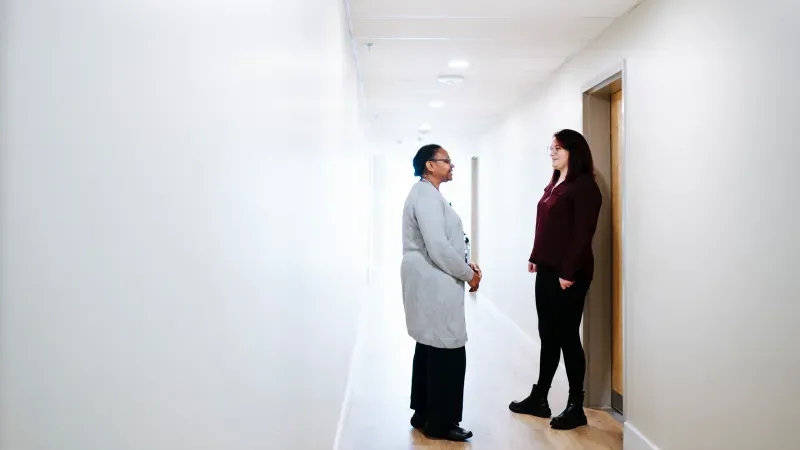
Running into freedom
Ed and Shelley took me to a shelter in Richmond, and I had a rough couple of days because the shelter wasn’t set up to help people detox. Two weeks later, I interviewed for The Sanctuary and I was able to get into stabilization right away. I was admitted to the third floor of UGM’s Women & Families Centre. Once I got settled, the first thing they helped me with was getting in to see a doctor for my eyesight. Within a month, I was having surgery.
The change in my life was night and day. The staff at The Sanctuary were completely supportive: I felt like I could talk to any of them about anything. They helped me get to all of my appointments, and I was able to talk to my mom. In recovery classes, I started to be completely honest about the things going on in my life. The women in programming understood — I felt like I could be completely myself.
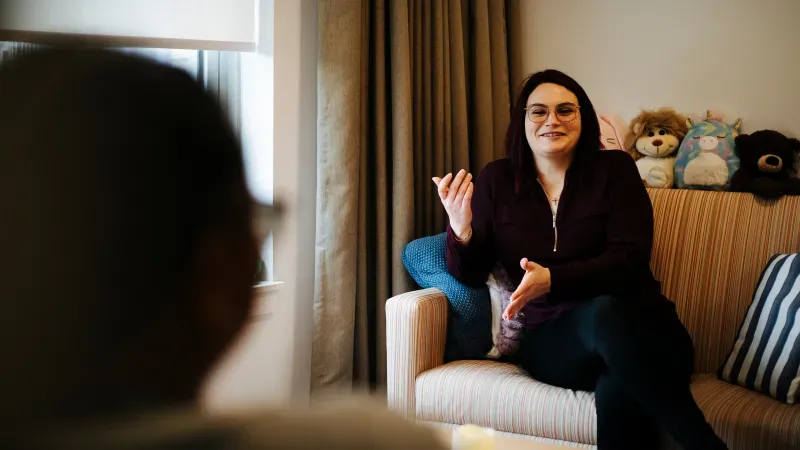
About two months after I arrived at The Sanctuary, Levi called me, screaming that I hadn’t called him on his birthday. I told him I’d been in another surgery, and he tried to guilt me into coming back to live with him. But all his arguments weren’t working anymore, because I was in a safe place. People were telling me that I was loved and I was worth it. I’d completely surrendered my will to the process. I was getting my life back.
“All his arguments weren’t working anymore, because I was in a safe place.”
The next day, the RCMP called me. Levi had been struck by a vehicle on the highway and had passed away. I wasn’t able to find out whether his family had held a funeral for him, but The Sanctuary put on a ceremony for me. They printed out pictures of us, and everyone from the second and third floors were invited. An Indigenous Elder led the service, and there were snacks and drinks. Now I have this closure, and I would never have gotten that anywhere else.
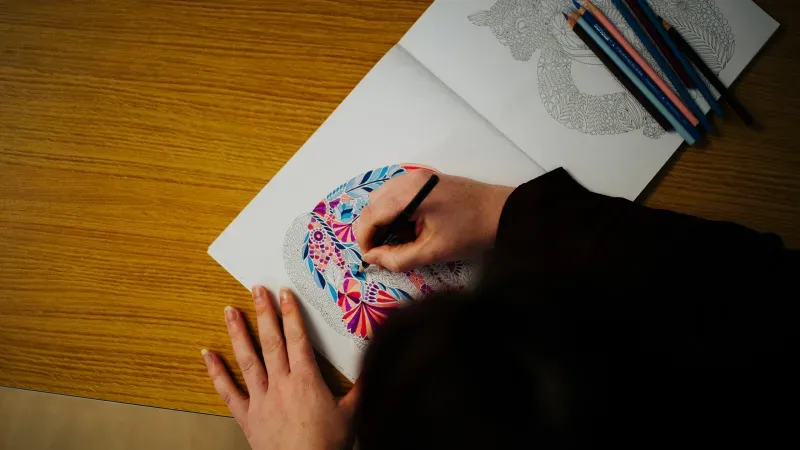
Taking nothing for granted
After treatment, I moved into a one-bedroom apartment in the Sanctuary Transitional Housing Program. I’m so grateful for a lot of the things people take for granted: indoor plumbing, running water, clean clothes. Now that I have these things again, I appreciate them so much more. I did an internship at The Sanctuary, and I’m working towards going back to school, whether to upgrade my design skills or try something entirely new.
I don’t know if you remember, but a while back there was a story about the Mobile Mission, and Ed and Shelly mentioned a woman coming in from an abusive relationship. That woman was me. So it’s so wonderful to be here in this full-circle moment. When I look back at everything, I can see how God was there for me the whole time. I have friendships now like I never did before. I feel like a whole person again.
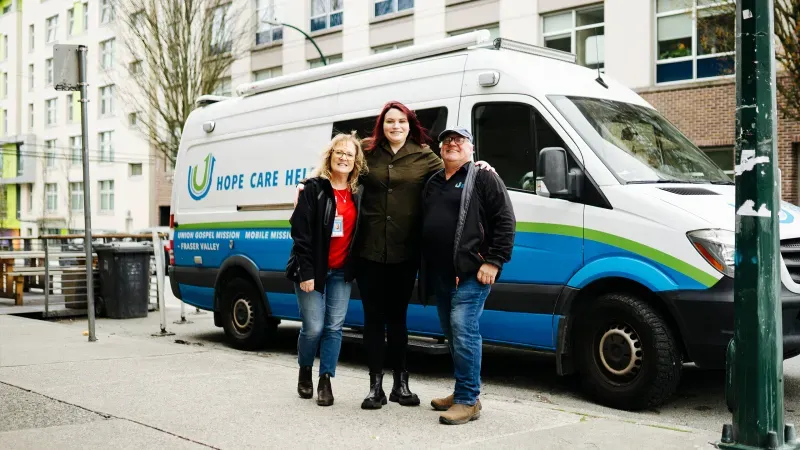
“Let us not become weary in doing good, for at the proper time we will reap a harvest if we do not give up.” — Galatians 6:9 (NIV)
One of the things I like best about Jesus is that he’s a storyteller. The gospels are full of parables and tales that give us insight into what God is like. They welcome us into God’s kingdom, and remind us that we are on a journey of discovery and transformation.
In this season of growth and change at Union Gospel Mission, I’ve found myself returning to the Parable of the Talents. If you’re not familiar with it, the story goes like this: a man, before leaving on a journey, calls together his servants and gives each a number of talents — a large sum of money that was worth many years’ salary. Some of the servants went off and invested their master’s money, doubling his initial gift. But one of the servants, claiming to be afraid of his master, buried his talent in the ground. When the man returned, he chastised his servant for not taking care of what he’d been given.
It is, admittedly, one of Jesus’s stranger parables. But what I hear from it is a call for responsibility, good stewardship, and an understanding of who has sent us out. It’s about using what we’ve been given well, and with intentionality.
I see clear parallels between this parable and our work here at UGM. God has blessed us with so many gifts of great value — resources, staff, volunteers, and the generosity of donors like you. It’s our role, as people in service of others, to invest these resources where they are most needed. This is why we’re expanding: we’re sharing what we’ve been given and trusting God to multiply it. Whether we’re helping women access recovery or inviting men in for a safe night of shelter, we are putting our talents to work, sparking the kind of hope that can change lives.
At the same time, it isn’t a secret that the needs in our communities have risen exponentially. We’ve shared the statistics: in the face of an opioid epidemic and an affordability crisis, more and more people are experiencing poverty, homelessness, and addiction. But hope isn’t lost. When we can offer people the support they need at the moment they need it, incredible breakthroughs can happen.
We’re so grateful that you’re putting your talents to work in service of God’s kingdom. Thank you for believing that everyone is worth investing in, and that more good things are ahead.
In faith and hope,

You Can Help Send TWICE as Many Kids to Camp This Summer
From now until May 31, your gift to camp will be matched, doubling your impact!

